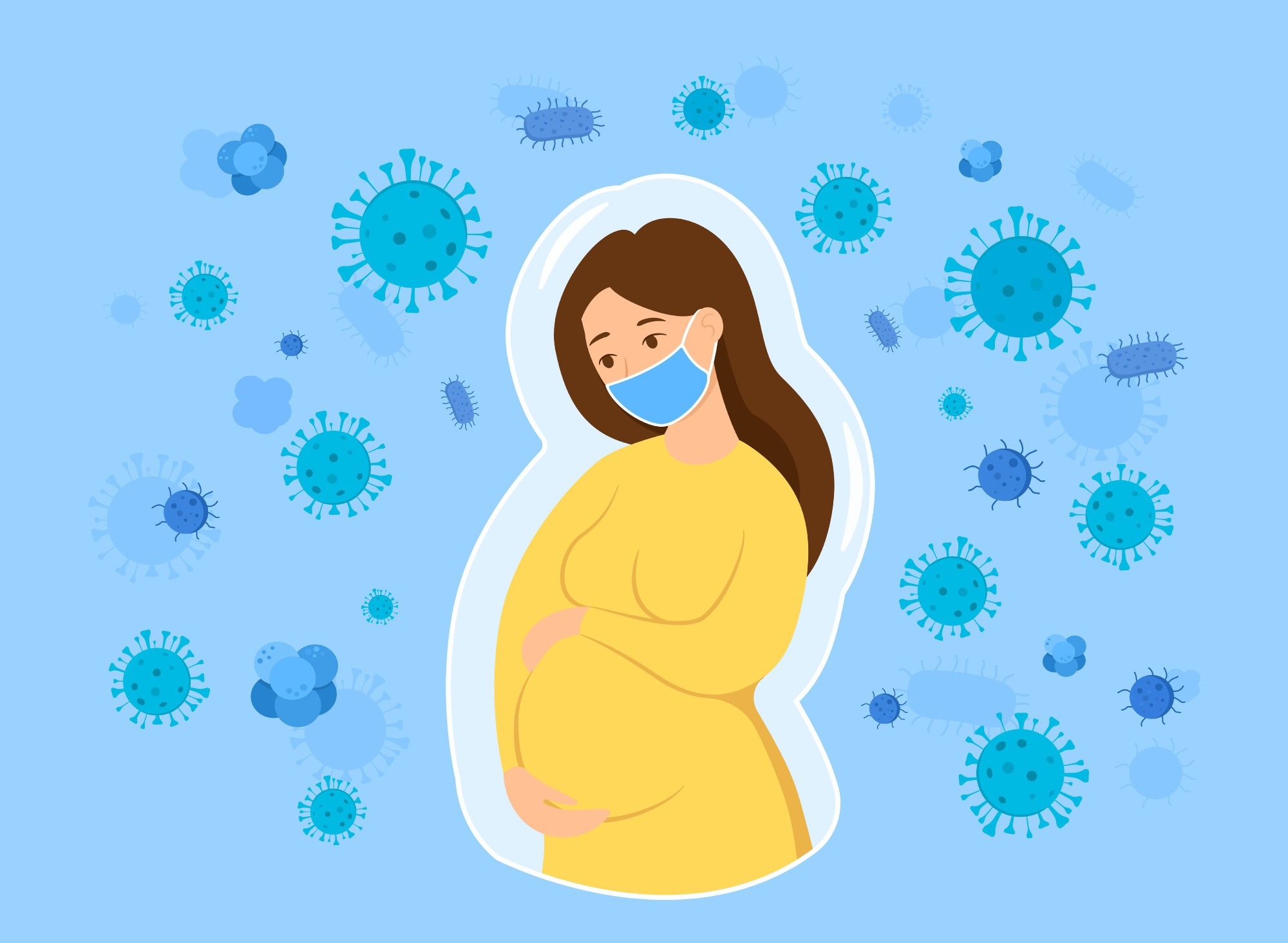In a recent study published in the CDC’s MMWR and Morbidity and Mortality Weekly Report, a group of researchers evaluated the protective efficacy of maternal coronavirus disease 2019 (COVID-19) vaccination during pregnancy against COVID-19-related hospitalizations and severe outcomes in infants under six months during the Omicron variant predominance.
Study: Effectiveness of Maternal mRNA COVID-19 Vaccination During Pregnancy Against COVID-19–Associated Hospitalizations in Infants Aged <6 Months During SARS-CoV-2 Omicron Predominance — 20 States, March 9, 2022–May 31, 2023. Image Credit: mentalmind / Shutterstock
Background
COVID-19 in pregnancy can lead to unfavorable pregnancy and neonatal outcomes. However, maternal vaccination has been demonstrated to transfer vaccine-induced antibodies to the fetus, thereby preventing severe infant outcomes related to the virus. Previously, maternal vaccination was estimated to have a 38% effectiveness against COVID-19-related hospitalizations in infants <6 months during the Omicron predominance (Dec 2021–Mar 2022). Further research is needed to continuously update and understand the evolving efficacy of maternal vaccination during varying stages of pregnancy and against emerging Severe Acute Respiratory Syndrome Coronavirus 2 (SARS-CoV-2) variants to optimize the protective benefit for both mothers and infants.
About the study
The Overcoming COVID-19 Network conducted an extensive study utilizing a case-control design to evaluate the Vaccine Effectiveness (VE) in infants aged under six months, using methods that have been previously outlined. The present study, conducted from March 2022 to May 2023, focused on infants hospitalized across 26 hospitals due to acute COVID-19 and included those who tested positive for SARS-CoV-2, as well as control infants who exhibitedCOVID–19–like illness but tested negative.
The study examined the implications of maternal receipt of at least one (messenger ribonucleic acid) mRNA COVID-19 vaccine dose during pregnancy, contrasting the data from vaccinated and unvaccinated mothers. It excluded infants whose mothers had inconclusive vaccination statuses or timings, ensuring the reliability of the analysis. This investigation occurred during the circulation of multiple Omicron sub-variants, which were meticulously identified.
Maternal vaccination statuses were categorized based on whether the mothers had received the vaccines before or during pregnancy, considering both mRNA and viral vector vaccines. The precise timing of vaccination and the subsequent intervals until the infants’ hospitalization were rigorously calculated.
VE was then computed, focusing on various influencing factors, including demographic characteristics and hospital admission details, utilizing robust statistical models and software. A secondary exploration of the VE among infants under 3 months was also undertaken. This meticulous activity complied with all relevant laws and policies and was sanctioned by the Centers for Disease Control and Prevention (CDC), ensuring its adherence to research ethics and protocols.
Study results
In the present study conducted from March 2022 to May 2023, among 1,076 infants hospitalized, 360 (33%) were excluded, primarily because their mothers received the most recent vaccine dose before pregnancy. Consequently, 716 hospitalized infants, of which 339 control patients and 377 case patients were included with a median age of 2.3 months. Among these, 153 (21%) had at least one underlying health condition, and 162 (23%) were born preterm.
Within the 377 case patients, 22% were born to females who had received a COVID-19 vaccine dose during pregnancy, compared to 28% in control patients, illustrating a noteworthy correlation between maternal vaccination and reduced infant hospitalization. The vaccine receipt timings were mostly within the first 20 weeks of pregnancy in both groups. Both groups exhibited similarities in demographics, prevalence of preterm births, and presence of underlying health conditions, although the prevalence of cardiac conditions was higher among case patients.
The present study found a substantial interval median of 236 days between the receipt of the most recent vaccine dose and subsequent infant hospitalization. The VE of receiving at least one COVID-19 vaccine dose during pregnancy against COVID-19-related hospitalizations was 35% among infants aged under six months. Impressively, the VE rose to 54% among infants aged under three months, with the interval median at 219 days between maternal vaccination and infant hospitalization.
Critical analysis of the 377 case patients revealed that 23% were admitted to an Intensive Care Unit (ICU), and 13% required critical care, demanding life support. Distinctively, mothers of 84% of critically ill infants were unvaccinated, underscoring the paramount importance of maternal vaccination. Invasive mechanical ventilation was more prevalent among infants whose mothers were unvaccinated, contrasting sharply with those born to vaccinated mothers. Notably, the majority, 77%, of case patients had no reported underlying health conditions. Among these healthy infants, the patterns were coherent; infants of unvaccinated mothers exhibited higher critical conditions and invasive mechanical ventilation.
Conclusions
The present study revealed that infants under six months whose mothers received at least one COVID-19 dose during pregnancy had a reduced risk of COVID-19-related hospitalization, particularly in the first three months of life. Out of 377 infants hospitalized with COVID-19, 78% were born to unvaccinated mothers. These findings emphasize the significant protective benefits of maternal vaccination, especially for infants too young to be vaccinated, without increasing the risk of adverse outcomes. This highlights the importance of maternal vaccination in reducing severe COVID-19 outcomes in infants.
